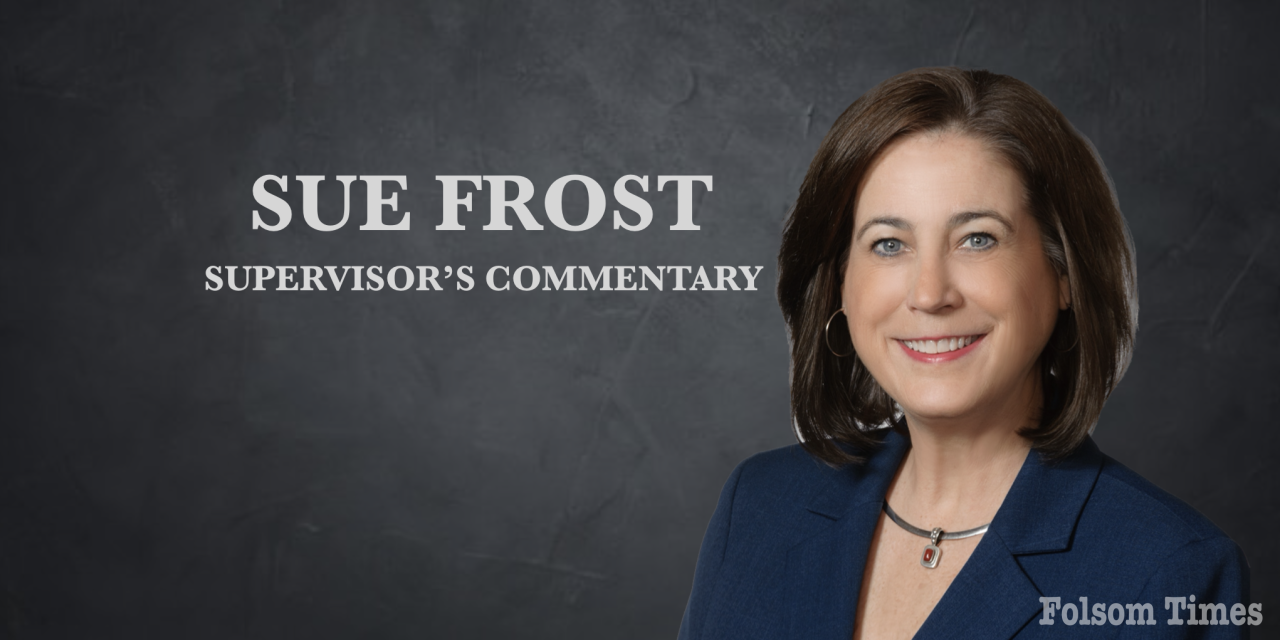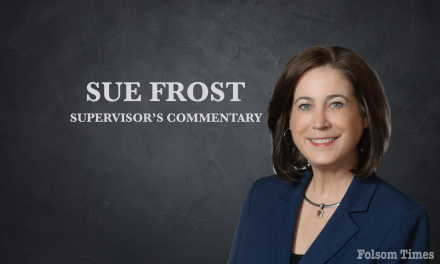Several years ago, I was approached by a group of individuals who were desperately advocating for the Sacramento Board to approve Laura’s Law, which would establish collaborative court proceedings for seriously mentally ill individuals who have not committed a crime, do not know they have a problem and yet they are a danger to themselves or others. At the time, my thoughts immediately drifted back to overcrowded State Mental Institutions, the movie “One Flew Over the Cuckoo’s Nest,” and a person’s civil rights.
Who decides if someone is seriously mentally ill, and when is the appropriate time to intercede on their behalf?
Then I learned about a condition called Anosognosia. This condition makes people believe they are not sick and do not know they need help. People who suffer from Anosognosia are more vulnerable and can threaten their families and others.
To give you some history, “Laura’s Law” was named after 19-year-old Laura Wilcox, who was killed in 2001 while volunteering at the Nevada County Department of Behavioral Health by a former patient of the county’s outpatient mental health clinic. It was signed into Law in November 2002 and was patterned after New York’s highly successful Kendra’s Law (AB1421).
Laura’s Law is also known as Assisted Outpatient Treatment (AOT). It allows court-ordered, intensive outpatient treatment for people 18 years old or older who suffer from severe mental illnesses and refuse treatment because their condition impairs their ability to make rational decisions.
We see and hear about these people daily. They are wandering the streets hungry and afraid, homeless and without hope. Sometimes they lash out, and their families don’t know how to help them. They are in our emergency rooms and often wind up in our jails, only to be released back to a society where they don’t fit in.
In 2021 the State of California required counties to “opt-in” or “opt-out” of the program, and if the county decided to “opt-out,” they had to provide a reason. By May of that year, the Sacramento Board of Supervisors voted unanimously to opt-in. Since that time, our staff has been coordinating with the Collaborative Courts – Judge Brown and his team, Law Enforcement Agencies, Probation, Adult Correctional Health, Substance Use Prevention and Treatment (SUPT), Department of Human Assistance (homeless services, Medi-Cal applications), and Community Organizations to meet individual service needs. The program has been estimated to cost 2.5 million annually.
I’m happy to report that our AOT Court is scheduled to go live in mid-February 2023. While we don’t know all the program details yet, I am told there will be a website for referrals; individuals will be strongly vetted to determine if they qualify for the program. Family members, roommates, treatment providers, and law enforcement may request an investigation. Only the County mental health director or their designee may file a petition with the court. There must be a clinical determination that the person is unlikely to be able to survive safely in the community without supervision. They will work with mental health and various service providers and receive multiple interviews and offers for services appropriate to their condition. There will be an opportunity to accept assistance with Mental Health through a formal agreement. They receive encouragement, rewards, and even a graduation certificate during their treatment. If they do not take services, they can receive assistance from a public defender and petition the AOT Court, where they will go before the Honorable Superior Court Judge Lawrence Brown.
I met with Judge Brown last week, and he described these as collaborative justice courts, where a team of experts are all working together to achieve the best outcome for that person. While the Judge in the Black Robe is a strong influence, he underscored the importance of the collaborative team, who all work together on behalf of that person.
While we cannot force treatments or lock people up if they have not committed a crime, other counties with AOT programs report that many individuals opt into treatment before ever getting to the Judge in the Black Robe. It is my understanding that an estimated 30% of those treated are transitioning out of homelessness and into a stable living environment.
AOT is just one tool in our End Homelessness Toolbox. While expensive, it can positively impact our most vulnerable individuals, who represent a high cost to taxpayers, and negatively impact businesses and neighborhoods.
Thank you for reading – and as always, if you want to contact me, call me at 916-874-5491, or e-mail me at SupervisorFrost@saccounty.gov.
Sacramento County Supervisor Sue Frost represents the 4th District, which includes the communities of Citrus Heights, Folsom, Orangevale, Antelope, North Highlands, Rio Linda, Elverta, and Rancho Murieta




